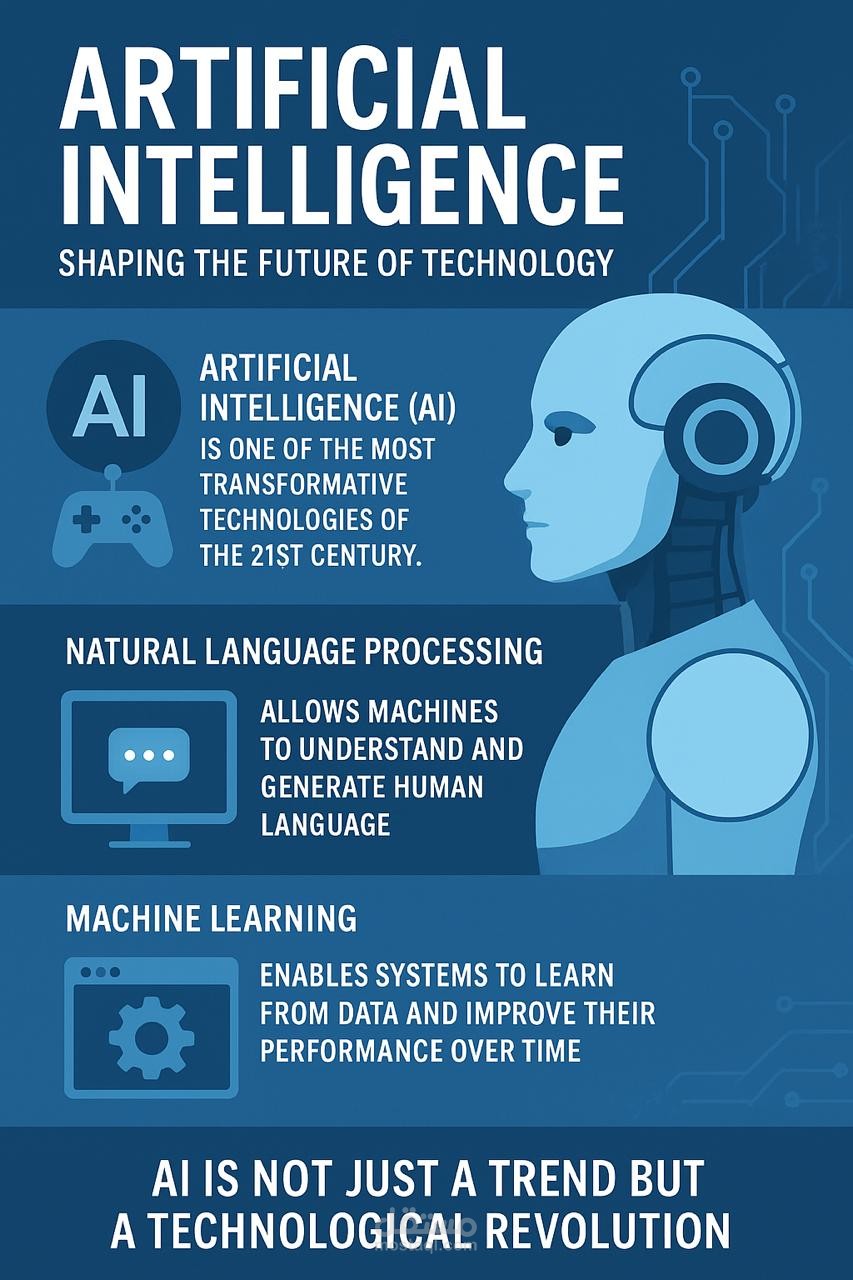ترجمه مقال تقني
تفاصيل العمل
Artificial Intelligence: Shaping the Future of Technology
Artificial Intelligence (AI) is one of the most transformative technologies of the 21st century. It refers to the simulation of human intelligence in machines that are programmed to think, learn, and make decisions. AI has rapidly evolved from a theoretical concept into a powerful tool that impacts almost every industry.
One of the most significant applications of AI is natural language processing (NLP), which allows machines to understand and generate human language. This technology powers virtual assistants, chatbots, and automated translation systems, making communication across languages faster and more accurate.
Another important area is machine learning (ML), a subset of AI that enables systems to learn from data and improve their performance over time without explicit programming. ML algorithms are widely used in healthcare for disease prediction, in finance for fraud detection, and in marketing for personalized recommendations.
Despite its benefits, AI also presents challenges. Issues like data privacy, algorithmic bias, and job displacement are critical concerns that researchers and policymakers must address. Ensuring ethical AI development is essential for building trust and maximizing its positive impact.
In conclusion, AI is not just a trend but a technological revolution. As it continues to advance, it will reshape industries, redefine jobs, and create new opportunities that were once unimaginable.
الذكاء الاصطناعي: تشكيل مستقبل التكنولوجيا
يُعد الذكاء الاصطناعي (AI) واحدًا من أكثر التقنيات التحويلية في القرن الحادي والعشرين. ويشير إلى محاكاة الذكاء البشري في الآلات المبرمجة للتفكير والتعلّم واتخاذ القرارات. لقد تطور الذكاء الاصطناعي بسرعة من مجرد مفهوم نظري إلى أداة قوية تؤثر في معظم الصناعات.
من أبرز تطبيقات الذكاء الاصطناعي معالجة اللغة الطبيعية (NLP)، التي تمكّن الآلات من فهم اللغة البشرية وتوليدها. وتعتمد عليها المساعدات الافتراضية، وروبوتات الدردشة (Chatbots)، وأنظمة الترجمة الآلية، مما يجعل التواصل بين اللغات أسرع وأكثر دقة.
كما يُعد التعلّم الآلي (ML) فرعًا مهمًا من الذكاء الاصطناعي، حيث يسمح للأنظمة بالتعلم من البيانات وتحسين أدائها مع مرور الوقت دون الحاجة إلى برمجة مباشرة. وتُستخدم خوارزميات التعلّم الآلي على نطاق واسع في الرعاية الصحية للتنبؤ بالأمراض، وفي التمويل لاكتشاف الاحتيال، وفي التسويق لتقديم توصيات مخصصة.
ورغم فوائده، يطرح الذكاء الاصطناعي تحديات مهمة، مثل قضايا خصوصية البيانات، والتحيز الخوارزمي، وفقدان الوظائف. لذلك يجب على الباحثين وصناع القرار معالجة هذه القضايا لضمان تطوير الذكاء الاصطناعي بشكل أخلاقي، وبناء الثقة، وتعظيم تأثيره الإيجابي.
في الختام، لا يُعتبر الذكاء الاصطناعي مجرد اتجاه عابر، بل ثورة تكنولوجية حقيقية. ومع استمرار تطوره، سيعيد تشكيل الصناعات، ويعيد تعريف الوظائف، ويخلق فرصًا جديدة لم يكن من الممكن تصورها من قبل
